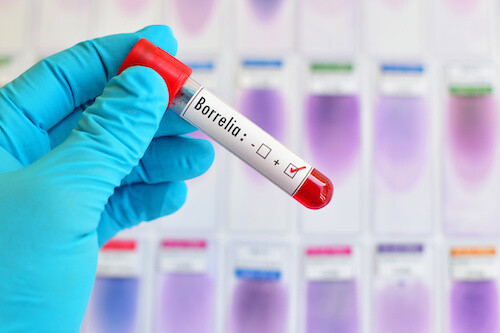Six Myths and Truths About Diagnosing and Treating Lyme Disease

Lyme disease is a serious condition that often mimics other neurological and autoimmune diseases. The tests for diagnosis are unreliable. Frequently, while doctors try to pin down a diagnosis, a person is suffering and losing their ability to function as this process lingers on. Lyme disease has a nasty habit of hiding in the immune system for a long time, which means someone may have symptoms months or years later. Some may not even know they have Lyme disease because there are multiple strains of the bacteria that cause the disease. Symptoms differ significantly from one person to another (Read more here on What is Lyme Disease?). Let’s get some myths out of the way to understand the Restoration Healthcare integrative model of care.

Myth #1, Tick Season
While you may have read that there is a tick season, when these little parasites that spread diseases are the most active, forget everything you’ve heard about tick season. In warm climates, where the weather seldom drops below freezing, ticks lurk in wooded, grassy, and rocky areas at any time of the year. And if you travel to even warmer temperatures, ticks may be even more active.
Myth #2, Testing Confirms Diagnosis
No blood tests can tell a doctor if you do or do not have Lyme disease. The Centers for Disease Control recommend a two-step laboratory testing approach with an antibody screen followed by a confirmatory Western blot. However, the tests only tell if someone was exposed to B. burgdorferi. These tests also miss 20-to-50 percent of patients who have Lyme disease. Even if you had a negative Lyme-Disease test, you might still have Lyme Disease. Why? It could mean your immune system is not producing antibodies to B. burgdorferi and other co-infections. Lyme disease can be dormant for days, months, years, and even decades, so finding a clinic that diagnoses and treats Lyme disease is essential.
Myth #3, Symptoms of Lyme are a Tell All
Lyme disease mimics many other autoimmune and neurological conditions, like multiple sclerosis, Parkinson’s, rheumatoid arthritis, chronic fatigue, fibromyalgia, ALS, and Alzheimer’s disease. Diagnose requires a comprehensive clinical picture of Lyme Disease along with a host of other criteria
Myth #4, All Lyme Patients Have the Same Symptoms
Everyone has a different experience – no symptoms, mild symptoms, or debilitating symptoms. Once you notice acute symptoms, the disease may have struck the central nervous system, which makes it difficult to cure. People with minor signs may have what is called “Lyme arthritis,” a less-severe form of the disease, according to the Lyme disease advocacy group Truth Cures. The organization reports that other people may have a type that suppresses the immune system and causes false negative test results.
Myth #5, A Rash Always Happens
While some health agencies say the most common symptom, a bulls-eye-like rash (called erythema migrans or EM), is seen in up to 80% of people with Lyme Disease soon after being bitten. Our experience at Restoration Healthcare shows the rash may be present as low as 20% to 40%.
Myth #6, Treatment is the Same for All
Our doctors may not recommend starting with a full-on, high dose of antibiotics right away because everyone responds differently. We examine and diagnose each patient independently and provide a comprehensive plan of care based on an individual’s response to treatment. Without appropriate care from a clinic with experience diagnosing and treating Lyme, the onset that mild flu-like symptoms can develop into severe health conditions that affect the cardiovascular, nervous, digestive system, and immune systems.

Lyme disease symptoms can include:
- Headache
- Fever
- Chills
- Fatigue
- Muscle and Joint Aches
- Arthritis with severe joint pain and swelling, particularly in the knees and other large joints
- Intermittent pain in tendons, muscles, joints, and bones
- Heart palpitations or irregular heartbeat
- Episodes of dizziness or shortness of breath
- Inflammation of the brain and spinal cord
- Nerve pain
- Shooting pains, numbness, or tingling in the hands or feet
- Digestive and bowel disorders
If you believe you have Lyme disease or perhaps another complex chronic illness and want the type of care that Restoration Healthcare provides, we would like to hear from you. Contact or call us at (949) 535-2322 to find out more.

